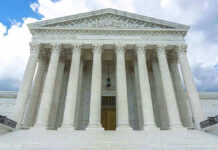
Canada’s autumn legislation to ratify the UK’s entry into the lucrative CPTPP trade pact signals a strategic shift in global trade alliances as both nations work to resolve lingering beef and cheese disputes that have stalled previous agreements.
Key Takeaways
- Canada plans to ratify Britain’s accession to the CPTPP this autumn, potentially opening access to a trade bloc with a combined GDP of £12 trillion
- Previous trade negotiations stalled over disputes concerning UK food standards, particularly regarding hormone-treated beef and cheese import levies
- A new joint task force will enhance cooperation in technology and artificial intelligence while working to resolve trade differences
- The UK is strengthening Canadian relations while preparing for critical G7 summit discussions on global conflicts and economic cooperation
- Sir Keir Starmer plans to meet with President Trump to finalize a US-UK trade deal
Canada Moves Forward on CPTPP Ratification
Canada’s government is taking decisive steps to finalize Britain’s membership in the Comprehensive and Progressive Agreement for Trans-Pacific Partnership (CPTPP), with legislation expected this autumn. While the UK formally joined the 11-nation trade bloc in 2024, Canada and Mexico have yet to complete their ratification processes. This development represents a significant breakthrough in trade relations, potentially unleashing substantial economic benefits for both countries by reducing tariffs and streamlining market access across multiple sectors, including financial services, manufacturing, and food products.
The CPTPP represents a massive economic opportunity, encompassing nations such as Australia, Japan, Malaysia, New Zealand, Singapore, and Vietnam with a combined economic output of £12 trillion. Membership promises “huge benefits” according to Downing Street, creating opportunities for British businesses to access these lucrative markets with lower trade barriers and preferential terms. For Canada, the UK’s inclusion strengthens the bloc while opening additional avenues for Canadian exports to reach British consumers under more favorable conditions.
Overcoming Trade Disputes
The path to comprehensive trade cooperation hasn’t been without obstacles. Previous negotiations for a bilateral UK-Canada free trade agreement stalled over contentious issues in the agricultural sector. British concerns about hormone-treated beef imports and Canadian frustrations regarding cheese import levies created significant roadblocks that prevented earlier agreements. Now, both governments appear committed to finding workable solutions through a newly established joint task force focused on resolving these lingering disputes.
“The taskforce will also look to make progress on the wider UK-Canada Free Trade Agreement,” Downing Street stated, highlighting the commitment to breaking through previous impasses and establishing a comprehensive trade framework between the two nations.
The UK government maintains its position on food standards, refusing to compromise on what it considers critical “red lines” similar to its approach in trade discussions with the United States. This principled stance reflects the conservative government’s commitment to maintaining high standards while pursuing ambitious international trade opportunities. Resolving these differences will require creative solutions that respect both nations’ regulatory priorities while enhancing market access.
Technology and AI Cooperation
Beyond traditional trade considerations, Britain and Canada are establishing a forward-looking partnership focused on technology and artificial intelligence. This collaboration connects the UK’s AI Safety Institute with Canadian counterparts, positioning both nations at the forefront of responsible AI development. The initiative demonstrates a shared commitment to harnessing emerging technologies while establishing appropriate governance frameworks that align with both countries’ values and strategic interests.
“Canada and the United Kingdom, of course, share history – we share values, we share governance,” Mr. Carney noted, emphasizing the natural alignment that makes technological cooperation particularly promising between the two nations.
Former Bank of England governor Mark Carney, who now serves as an advisor to the UK government, characterized this growing economic partnership as a “foundation of prosperity” that will deliver tangible benefits to citizens in both countries. His involvement signals the seriousness with which both governments are approaching these discussions, bringing high-level expertise to bear on complex economic and technological challenges.
Strategic International Positioning
The timing of these trade developments is particularly significant as Sir Keir Starmer prepares for the upcoming G7 summit in Kananaskis. This high-level gathering will address critical issues including Middle East conflicts, the ongoing war in Ukraine, and international economic cooperation. Ukrainian President Volodymyr Zelenskyy is expected to attend, highlighting the importance of coordinated Western support for Ukraine’s defense against Russian aggression. Starmer aims to project British leadership while advocating for restraint and de-escalation in global hotspots.
“For years, we’ve worked together as Commonwealth members, as independent, democratic sovereign countries, working alongside each other on issues of security, defence, trade, the economy, you name it,” Sir Keir emphasized, underscoring the deep historical ties that continue to shape UK-Canada relations.
Perhaps most significantly, Sir Keir plans to meet with President Trump to advance a potential US-UK trade agreement. This strategic diplomatic effort demonstrates Britain’s commitment to building strong economic relationships with major global powers while navigating an increasingly complex international environment. The UK’s balanced approach – strengthening Commonwealth ties while engaging productively with the United States – reflects a pragmatic foreign policy that puts British economic interests first while maintaining principled positions on standards and regulations.












